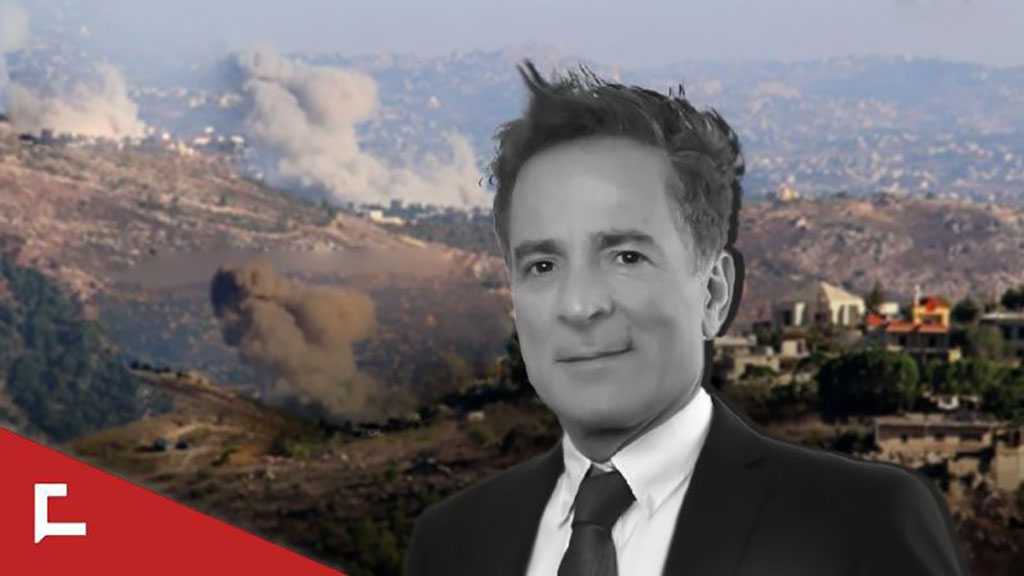
Lebanese Judicial Verdicts Confirm al-Qaida Presence, Affiliation in National Assassinations

The many resolutions and verdicts issued by the Lebanese judiciary, whether on the Justice or Military concerns, reveal that al-Qaida affiliation has been present in Lebanon since 1999, in the form of groups, networks, and cells that are attached to it directly or through other groups that seek credibility, similar to what is common in many Arab countries. This therefore confutes the statement of a considerable number of Lebanese political and security officials, who doubted the terrorist group's presence in Lebanon.
Reviewing all resolutions enlisted under the signatures of judges and trials would be enough. The said resolutions state that the networks revealed and captured in countries other than Lebanon, comply of some Lebanese people and others from different Arab and Western nationalities. These members were brought into Lebanon secretly and openly; whether through sneaking through illegal crossings on the Lebanese-Syrian borders, or through exploiting "legitimately forged" passports through Beirut airport, without any legal obstacle that would prevent them from entering Lebanon.
The first official presence of an Osama Bin Laden-affiliated group on the Lebanese territories was in 2000, where the group included Lebanese citizens, some of which are from the town of Majdal Anjar in the Bekaa region. Other members were Syrians, Palestinians, Jordanians, Egyptians, among which was Ayman Abdul Razak Kamaleddine (born in 1968), and known as "al-Tintawi".

Also, the indictment labeled number 1, issued in Beirut on April 13, 2000 by the military investigation judge General George Khouri, before he became head of Lebanese Army intelligence, stated that "throughout the past years, a fundamentalist religious group was established, and it is affiliated with the fundamentalist activist Osama Bin Laden who resides in Afghanistan".
The indictment also indicated the work of this network and its deployment inside the Palestinian refugee camps in Lebanon and Syria, to state that "transporting weapons outside the Lebanese territories aimed at smuggling them later into Jordan in order to conduct some anti-US and anti-Jewish terrorist acts, according to requests from Osama Bin Laden".
The Egyptian member Kamaleddine confessed that he sneaked into the Lebanese territories, using a forged passport, adding that he had once already participated in one of the battle fronts in the Jalal Abad area in Afghanistan.
One after the other, the beads connected to al-Qaida networks fell apart, and one of the beads was represented by Lebanese State Prosecutor General Saeed Mirza's claim, then judicial general prosecutor in 2007, about some groups affiliated with Fateh al-Islam after the violent clashes with the Lebanese army in Naher el-Bared Palestinian refugee camp. The prosecution included Lebanese, Syrian, Palestinian, and Saudi citizens, among which was the so-called spiritual guide of al-Qaida, the Saudi figure Abdullah Mohammad Ahmad Bishi, and the coordinator between al-Qaida and Fateh al-Islam, the Syrian figure Hani al-Sankary.
In his claim, Mirza indicated that the Lebanese Ahmad Mamdouh al-Omar and Mohammad Bassam Ismail Hammoud are suspected of being involved with al-Qaida, and he mentioned the names of 43 Saudis pursued in their country for being involved in al-Qaida. Some of these suspects were captured into custody, and were then handed over to their countries' authorities. On another hand, some other suspects remained hiding, and those who were captured in Lebanon, were not here for touristic causes, but to cause military conflict.

According to Mirza's appeal, here are some of the names of al-Qaida suspects: Ayed Mubarak Abdullah al-Qahtani known to be (Abi Mosab), Abdul Rahman Hussein Abdullah al-Mas, Abdul Rahman Yahya Abdul Aziz Yahya (Talha the Saudi), Abdul Majid Omar Ali Al Ali Bin Laith al-Saiary. Talal Muslim Saleh al-Saiary, Khaled Ali Suleiman Bin Laith al-Saiary, Abdul Aziz Khaled Ibrahim al-Abid, Issam Suleiman Mohammad Daoud, Maaz Abdul Aziz Naser Daoud, and Maaz Abdul Aziz Suleiman al-Makhlak.
Moreover, Mirza also called for the prosecution of Abdullah Jawha's group, which targeted the Lebanese army in the Bahsas area in Tripoli.
Lebanese Judiciary investigator Nabil Sari indicated with regard to this case that occurred on September 29 2008, that Fateh al-Islam affiliation was aware through many of his networks and groups of the assassination of Future Bloc MP Walid Eido on Wednesday 13 June 2007. He added that al-Qaida is involved in the assassination of head of operations unit in the Lebanese Army François al-Hajj on Wednesday December 12, 2007.
In his indictment, Judge Sari mentioned that the witness Fadi Ibrahim (al-Sicmo), and who was held responsible for other operations conducted by Fateh al-Islam affiliation, said that the Prince of this affiliation in Ein el Helweh refugee camp Abdul Rahman Awad (Abu Mohammad Shahrour), who was killed by a Lebanese intelligence patrol on August 14 2010, had said before him that his group assassinated MP Walid Eido, and caused the explosion of the mall in Ashrafiyeh.
Judge Sari also added that Fateh al-Islam cells were formed in Ein el-Helweh refugee camp, part of the repercussions of the US invasion of Iraq. The group was led by Abdul Rahman Mohammad Awad, who was assisted by Osama Amine al-Shahabi, who was coordinating the work with al-Qaida. A Prominent Security Officer in Lebanon in 2007 stated that a number of al-Qaida members are entering Lebanon through the airport by using legitimate passports, and they go from one Palestinian refugee camp to another, where they are embraced. Al-Qaida members are then deployed in accordance with an agenda set before. It is worth mentioning that these members cannot be arrested when they enter the Lebanese territories, because there isn't anything that calls for their arrest, and no one is allowed to be arrested before committing a crime!
The said excuses were not convincing, especially that the security information confirmed the reasons affirming the coming of members to Lebanon, of course not for tourism, but in order to conduct terrorist acts.
Source: Al Intiqad Online Newspaper, Translated and Edited by moqawama.org team



